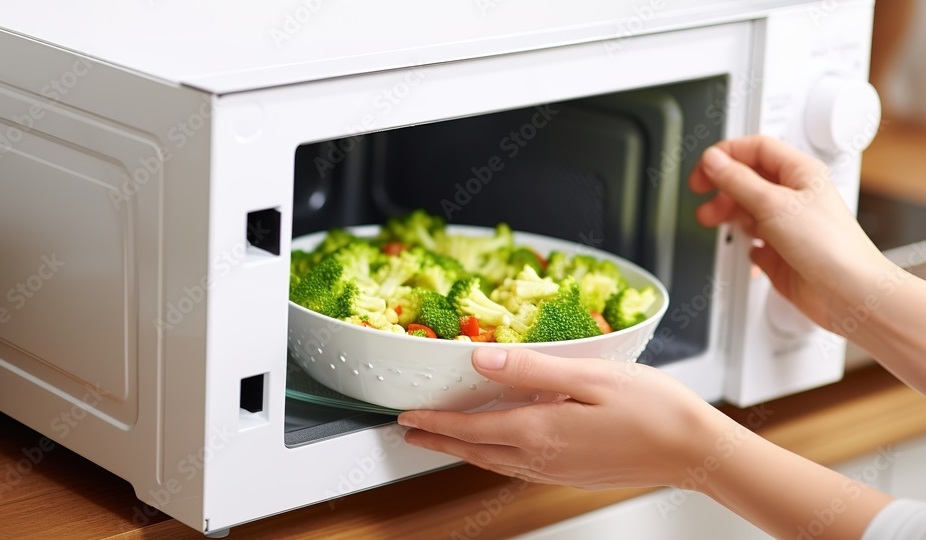Microwaving food has always been a bit of a nutritional mystery. Many people believe that this quick and convenient cooking method zaps the nutrients out of our meals, leaving us with bland, empty calories. But is this really true? Let’s delve into the science and separate fact from fiction.
What Happens Inside the Microwave?
Microwaves use a clever trick with electromagnetic waves to make water molecules in your food wiggle and create heat. This heat is what cooks your food quickly and efficiently. Unlike stovetop cooking or baking, microwaving is lightning fast.
Does Microwaving Retain Nutrients?
Surprisingly, microwaving is actually one of the least damaging cooking methods in terms of nutrient loss. Nutrients, particularly water-soluble vitamins like vitamin C and B vitamins, are susceptible to degradation from heat, air, and water exposure. Because microwaving is quick and doesn’t use a lot of water, it actually helps keep these nutrients intact better than boiling.
A study in the Journal of Food Science found that microwaved broccoli kept more vitamin C and antioxidants than boiled broccoli. Similarly, microwaved carrots held onto more antioxidants than their boiled buddies. These findings suggest that microwaving can actually help foods retain more of their nutritional value.
Factors Affecting Nutrient Retention
Now, don’t get too cocky with that microwave just yet. The way you use it matters:
- Cooking Time: Just like any cooking method, don’t overdo it. Cook veggies until they’re just right to keep the nutrients happy.
- Amount of Water: Adding too much water during microwaving can wash away nutrients. Try using minimal water or cover your food to steam it and keep those goodies inside.
- Type of Food: Different foods react differently to microwaving. Spinach, for example, loves a quick steam in the microwave to keep its nutrients locked in.
Tips for Microwaving Nutrient-Rich Food
Want to get the most out of your microwave? Try these tips:
- Use Microwave-Safe Dishes: Use microwave-safe containers to keep things safe and tasty.
- Cut Food into Even Sizes: Chop your food into similar sizes for even cooking.
- Add Minimal Water: Use just enough water to get the job done when cooking vegetables. Cover them up to steam and retain those nutrients.
Also Read :
- 10 Dessert Recipes to Help You Poop in the Morning
- What Dietitians Recommend You Look for When Buying Supplements
- 10 Best Foods to Stock Up on This May, According to Dietitians
FAQ’s
What foods are best suited for microwaving to retain nutrients?
Most vegetables can be microwaved effectively to retain their nutrients. It’s best to use minimal water and cook them for a short duration to preserve vitamins and antioxidants.
Does covering food while microwaving make a difference?
Yes, covering food while microwaving can help retain moisture and nutrients. It can also prevent nutrient loss due to steam escaping.
Are there any nutrients that are negatively affected by microwaving?
Microwaving can cause some degradation of certain nutrients, particularly if food is overcooked or exposed to high heat for too long. However, overall, microwaving is considered a nutrient-friendly cooking method.
Is microwaving safe for cooking food?
Yes, microwaving is generally safe for cooking food when used according to manufacturer instructions and guidelines. Always use microwave-safe containers and avoid overheating food.
Can microwaving affect the taste or texture of food?
Microwaving can alter the taste and texture of some foods compared to other cooking methods. However, with proper techniques and timing, you can achieve delicious results while retaining nutrients.
Should I be concerned about microwaves affecting my health?
Microwaves used in modern microwave ovens are considered safe and do not make food radioactive or cause any long-term health issues. Follow proper usage guidelines and avoid using damaged microwave ovens.
What are some quick and nutritious microwave meal ideas?
You can prepare quick and nutritious meals using a microwave, such as steamed vegetables, oatmeal, scrambled eggs, baked potatoes, or even fish fillets. Experiment with different ingredients and seasonings for delicious and healthy microwave meals.
How does microwaving affect vitamins and antioxidants?
Microwaving cooks food quickly and with minimal water, which can help retain heat-sensitive nutrients like vitamin C and antioxidants better than methods involving prolonged exposure to heat and water.
The Bottom Line :
Microwaving doesn’t destroy nutrients—it can actually help preserve them if you play your cards right. By using smart techniques and being mindful of how you cook, you can whip up nutrient-rich meals in no time. So go ahead, give your microwave some love, and enjoy your nutritious creations without the worry.
